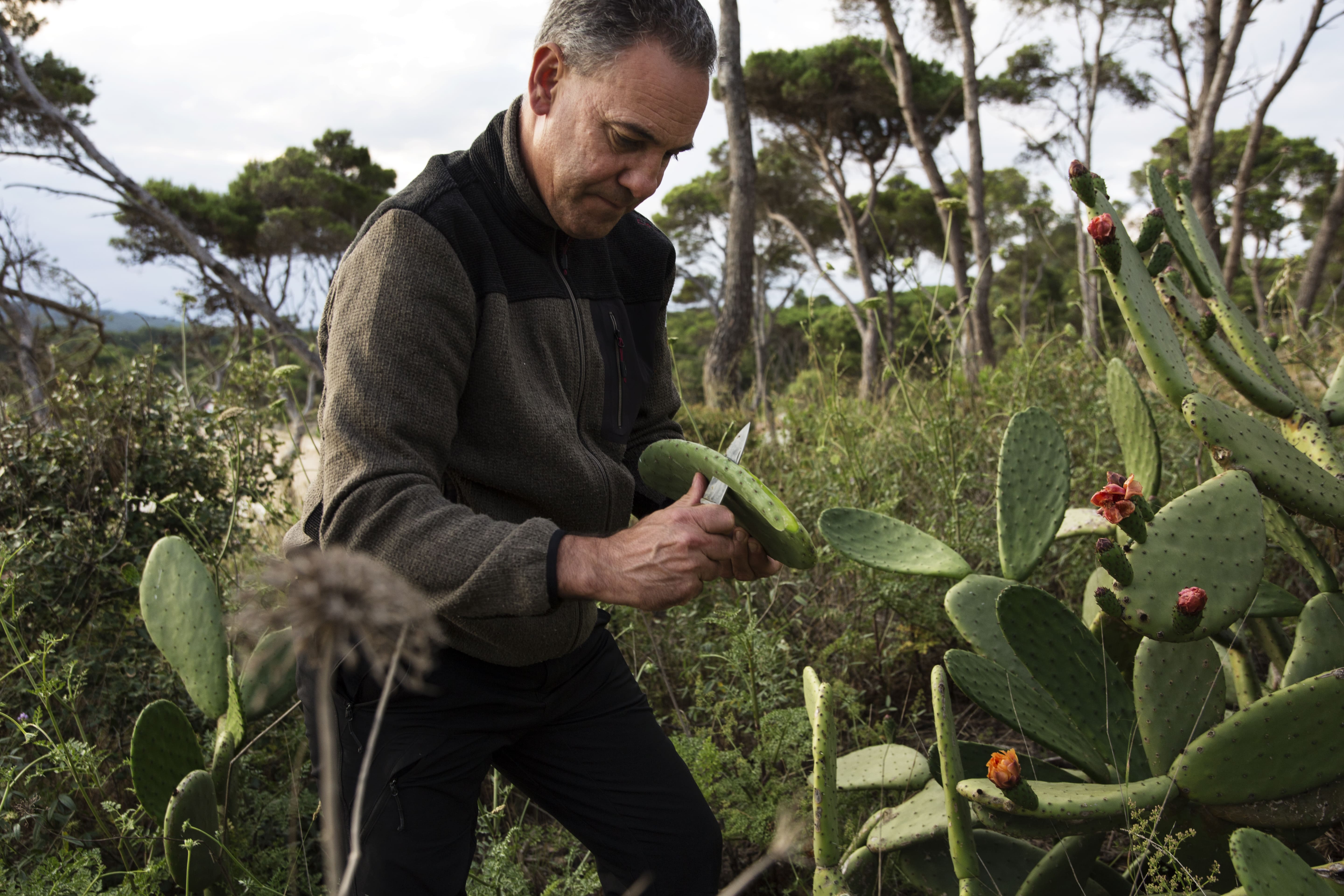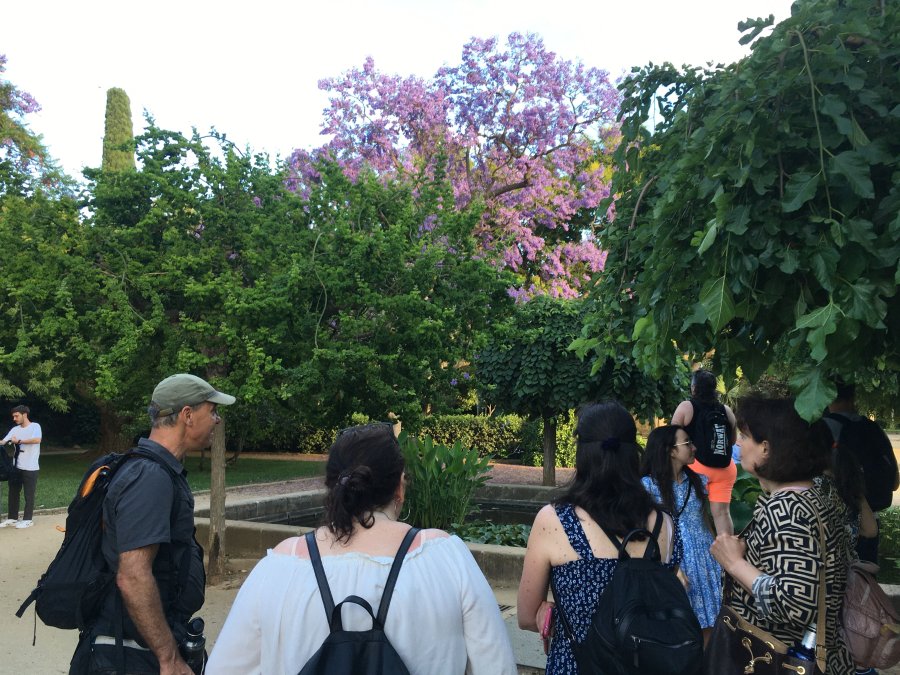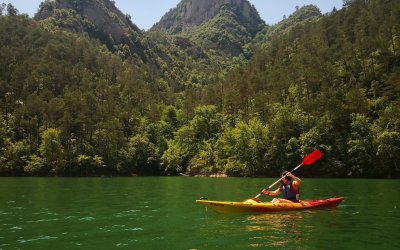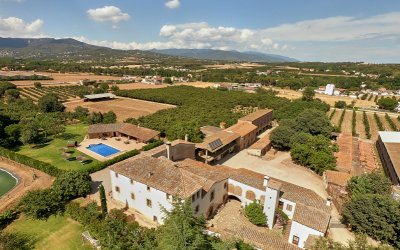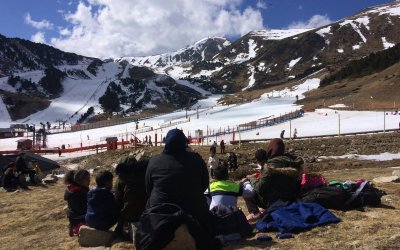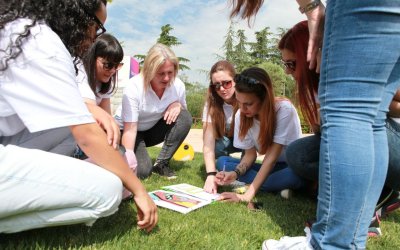Naturalwalks (Montseny, Vallès)
Approaching cuisine from a scientific perspective, applying botanical knowledge. This is the method that has led Evarist March, biologist, nature guide, and consultant, to the kitchens of one of the world's best restaurants.
And that's not all. It is just one small part of the life journey of this guide with an environmentalist spirit, who is convinced that environmental protection and culture go hand in hand.
Coming from a family of farmers, his connection to sustainability goes way back. He has been involved in environmentalism since the age of 14. This drove him to follow the path of the great figures in nature conservation such as Salvador Grau, promoter of Catalonia’s natural parks; Joan Manel Riera, a pioneer in environmental education; or the expert on the local region, Roser Campeny, among many others. “I grew up with them”, he explains. “I came to understand that the notion of caring for the land and the environment could be approached in a very rigorous manner.”
This initial involvement with environmental protection allowed Evarist to become familiar with the various idiosyncrasies of each area, leading him to a conclusion: “What truly defines people is their relationship with the climate and the land where they live; how different generations have survived there by understanding their natural resources, and the influence all of this has had on their cuisine”.
That is why, for him, environmental protection and culture are intimately linked; that is why he became involved in different social initiatives in places such as the Basque Country or Colombia. And also in our country, collaborating with the economist and activist Arcadi Oliveres. “Nature and sustainability are cross-cutting elements”, he says. And that's why he created Naturalwalks, an ecotourism company that aims to teach culture through its natural origins. “We want to reclaim the authenticity of culture in every corner, to understand how people have related to it”, he explains.
Gastrobotany for the most demanding palates
This passion for connecting people with nature and its cultural context has driven Evarist to spearhead remarkable initiatives. For instance, he runs a gastrobotanical consultancy catering to clients in the hospitality sector, assessing the culinary potential of diverse wild plant and fungal resources at their request.
“From a very young age, I searched for herbs, especially medicinal ones”, he says, “and I saw that many of these plants were edible but their use in the kitchen had been forgotten since the post-war period.” The innovative twist his proposal brought to the world of haute cuisine made him the leading botanist at the famous Celler de Can Roca restaurant. “It was a time when sustainability was not yet talked about in haute cuisine but they were very receptive to it.”
This collaboration has resulted in dishes such as “Weeds”, a creation that aims to raise awareness among customers about the plants in our immediate environment, and about the effects of invasive species in particular. “We have a motto for the most aggressive ones: if we can't beat them, let's eat them.” And so this and other pioneering initiatives sparked a change in how leading restaurants approached sustainability.
His career at the helm of Naturalwalks has earned him the Generalitat Award for Best Tourist Experience. A practical demonstration of how a commitment to sustainability can also mean a different business model.
“Sustainability cannot be just a trending topic”, concludes Evarist. “Because we are playing with our coexistence with the planet.”
